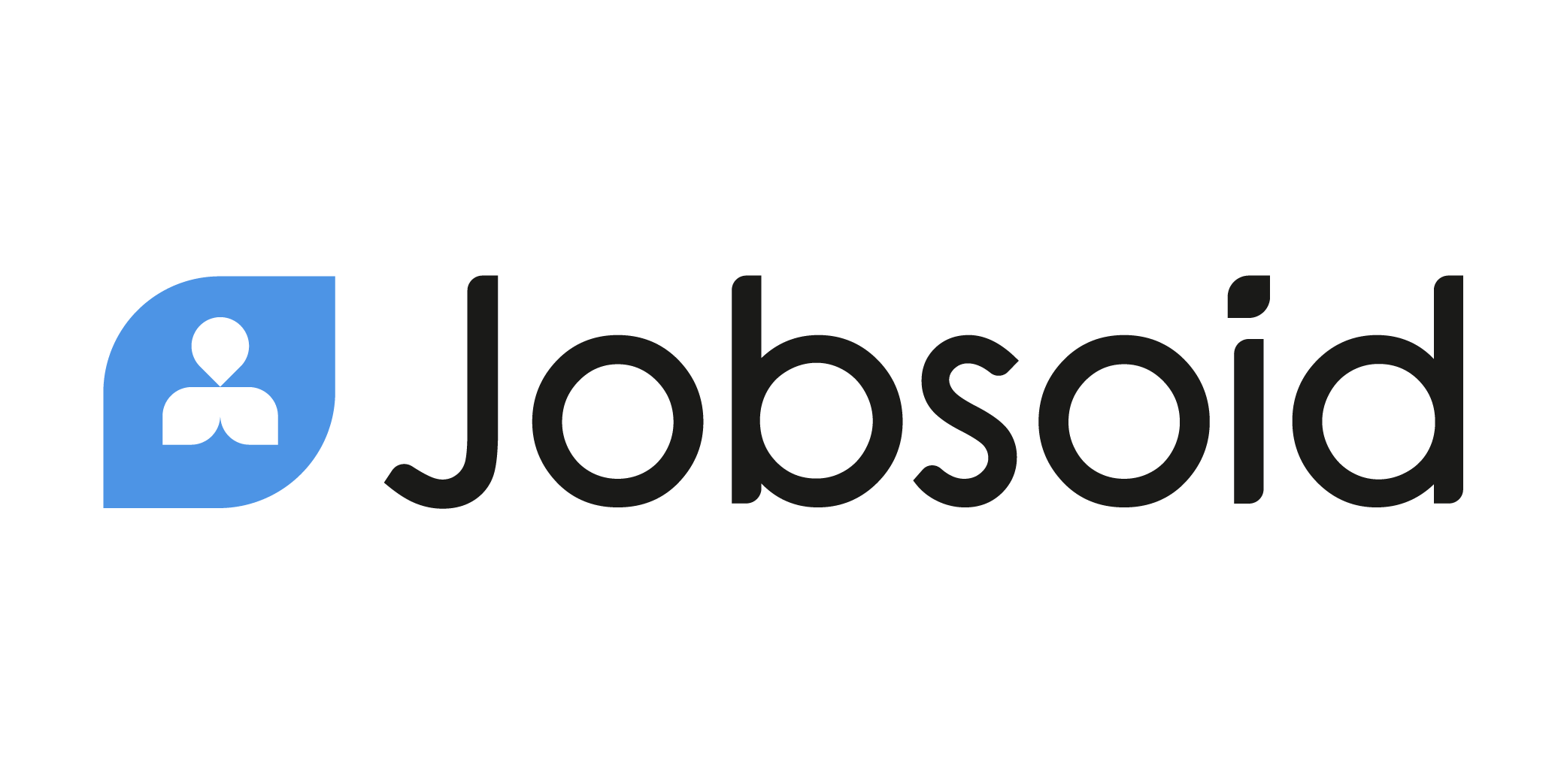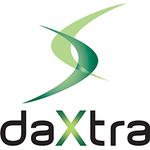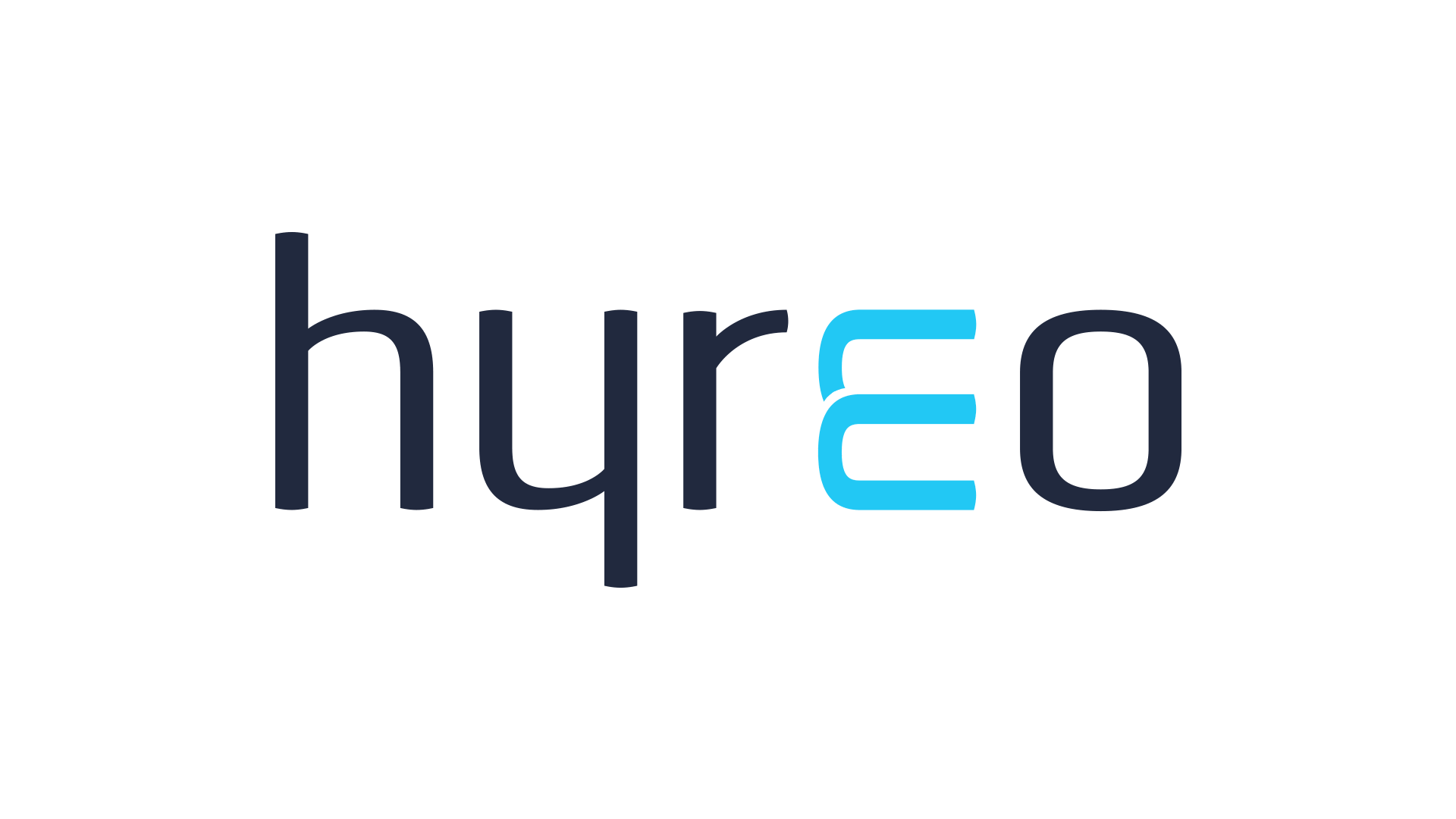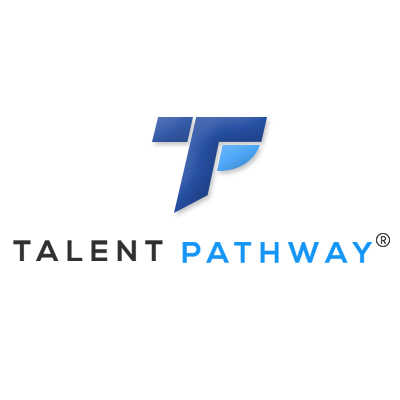Yes, candidate management software is intended to be accessible from different devices and platforms. This implies that it works on any desktop, laptop, tablet, or smartphone, independent of operating system. This allows you to manage candidates on the road and be informed about your recruitment process at all times. With a cloud-based solution, all of your data and modifications will be synced across all devices, delivering a consistent experience.
List of Best Candidate Management Software
TrackerRMS, a top-of-the-line customer management solution designed for small and mid-sized businesses. Our software enables you to enhance your customer data and cultivate stronger client relationships. With efficient management of pipelines and sal...Read More TrackerRMS
Jobsoid is a Online Applicant Tracking System (ATS) that optimizes the entire recruitment process for businesses. Its state-of-the-art features simplify steps from sourcing top candidates to securing the ideal hire. With a user-friendly interface and...Read More Jobsoid
e2eHiring is a solution for your hiring needs. This exceptional platform simplifies the hiring process by enabling you to effortlessly create job listings and conduct interviews, at your convenience. With e2eHiring, finding the best candidates for yo...Read More e2ehiring
GoHire ATS - your ultimate hiring solution. Our user-friendly platform simplifies every stage of the recruitment process, from sourcing top talent to scheduling interviews with ease. With GoHire, you can save time and money while building a high-perf...Read More GoHire ATS
Talentpool is a recruitment management solution that empowers your team to achieve their full potential. With our cutting-edge platform, you can streamline your processes, enhance collaboration, and access a centralized database for seamless enterpri...Read More Talentpool - Recruitment
The Applicant Manager - software designed to simplify your hiring process and save you valuable time. This innovative tool enhances your brand and securely stores applicant data in the cloud. Say goodbye to tedious applicant management and hello to f...Read More The Applicant Manager
Daxtra - a leading intelligent recruiting solution that revolutionizes the hiring process. With cutting-edge features like multilingual search, data parsing, and automation, Daxtra seamlessly integrates with ATS and CRM systems for enhanced efficienc...Read More Daxtra
ROC-P, cloud-based solution that caters to the needs of boards and certifying organizations in diverse industries. This innovative software simplifies the management of candidates, certifications, and credentials, enhancing overall efficiency and pro...Read More ROC-P
Hyreo Enterprise is a chat system that utilizes ML technology to facilitate continuous communication with top-notch candidates and ensure their engagement even after they have accepted a job offer. By combining conversational capabilities with advanc...Read More Hyreo Enterprise
Candidate Manager solution for attracting and retaining top talent. Our primary focus is to assist global businesses in finding ideal candidates for their roles, leading to long-term success. Our extensive recruitment tools enable companies to effort...Read More Candidate Manager
Talent Pathway is a ATS and recruiting software for staffing agencies, firms, and businesses. Simplify your hiring process with our advanced features that help you efficiently manage and monitor recruitment. Say goodbye to manual tasks and hello to a...Read More Talent Pathway
TalentOrb is a ATS for streamlining your recruitment process. With cutting-edge technology at its core, this platform provides a complete solution for managing every step of hiring, from posting job listings to selecting top candidates and seamlessly...Read More TalentOrb
Thrive TRM is a highly advanced executive search platform that streamlines talent management and accelerates the hiring process. This robust solution comes with a range of cutting-edge features, such as relationship tracking, talent scouting, and com...Read More Thrive TRM
TalentLyft solution for streamlining your recruitment process. Our powerful suite of tools simplifies everything from sourcing and tracking candidates to building a strong employer brand and leveraging data for smart hiring decisions. With TalentLyft...Read More TalentLyft
TRIS is the definitive solution for achieving business transformation. Utilizing cutting-edge technology and groundbreaking capabilities, TRIS delivers unparalleled performance and elevates industry benchmarks. A game-changer in streamlining operatio...Read More TRIS
Recruiteze is a recruitment solution for small and medium businesses. This software streamlines the hiring process with innovative features such as automated resume formatting and customizable workflows. Say goodbye to tedious hiring tasks and hello...Read More Recruiteze
TribePad is a recruitment software that offers a comprehensive suite of tools for seamless hiring. With features like Applicant Tracking System, video interviews, onboarding, and contractor management, it enables businesses to quickly and effectively...Read More TribePad
Recruiterflow the recruitment software designed for staffing and recruiting agencies. Easily source candidates, automate emails, and save time on administrative tasks with just one click. Eliminate the hassles and stay focused on your core competency...Read More Recruiterflow
Learn More About Candidate Management Software
- What Is Candidate Management Software?
- What Are The Recent Trends In Candidate Management Software?
- Benefits Of Using Candidate Management Software
- Important Factors To Consider While Purchasing Candidate Management Software?
- What Are The Key Features To Look For In Candidate Management Software?
- Why Do Businesses Need Candidate Management Software?
- How Much Time Is Required To Implement Candidate Management Software?
- What Is The Level Of Customization Available In Candidate Management Software?
- Which Industries Can Benefit The Most From Candidate Management Software?
- Conclusion
What Is Candidate Management Software?
Candidate Management Software (CMS) is a specialized tool designed to streamline and optimize the process of recruiting and managing job candidates. It is a vital component of human resource management and plays a crucial role in the success of any organization's hiring strategy. At its core, CMS is a digital platform that helps employers attract, track, and engage with potential candidates.
It acts as a central hub for all recruitment activities, from posting job listings to managing applicants, conducting interviews, and making job offers. It eliminates the need for manual and time-consuming methods, such as paper resumes and spreadsheets, making the hiring process more efficient and error-free. With a user-friendly interface, CMS allows recruiters to create job postings and post them on multiple online job boards, social media, and company websites simultaneously.
This helps in reaching a larger pool of candidates and increasing the chances of finding the right fit for a job opening. One of the key features of CMS is its ability to track and manage applicants throughout the recruitment process. It allows recruiters to view and compare candidate profiles, resumes, and application status in one place. This not only saves time and effort but also enables better decision-making based on comprehensive and up-to-date information.
Additionally, CMS offers features such as automated applicant screening, communication tools, interview scheduling, and online assessment tests, further streamlining the hiring process and reducing the chances of missing out on qualified candidates. Moreover, CMS also provides analytics and reporting capabilities, allowing recruiters to track and analyze key metrics such as time-to-hire, cost-per-hire, and source of applicants.
This data can help organizations improve their recruitment strategies and make data-driven decisions for future hiring. In summary, Candidate Management Software is a powerful tool that helps businesses find and hire the best talent efficiently, effectively, and with minimal effort. Whether you are a small business or a large corporation, a well-equipped CMS is essential for staying competitive in today's fast-paced job market.
What Are The Recent Trends In Candidate Management Software?
Recently, the recruitment industry has undergone rapid technological advancements, resulting in an increase in the creation of candidate management software. This technology has shown to be quite valuable for hiring teams by streamlining and automating the candidate search and selection process. As the race for top talent heats up, firms must stay current on the latest innovations in applicant management software to be competitive.
1. Artificial Intelligence (AI) Integration: One of the most important current advancements in candidate management software is the incorporation of artificial intelligence. AI-powered software employs algorithms and machine learning to find top talent from a vast pool of resumes, saving recruiters time and effort. It also aids in determining which individuals are the best fit for the organisation based on their qualifications, abilities, and experience.
2. Mobile-Friendly Applications: As smartphones become more popular, candidates are increasingly using them to search for and apply for jobs. As a result, applicant management software suppliers are focusing on developing mobile-friendly applications that enable recruiters to examine and reply to candidate applications while on the road. This tendency has significantly increased the efficiency and speed of the employment process.
3. Social Media Integration: Recruiters now rely heavily on social media to find top talent. Many applicant management software now includes social media connectivity, allowing recruiters to look for possible candidates on networks like LinkedIn and communicate with them directly. This development has enabled recruiters to contact a bigger pool of prospects and interact with them more efficiently.
4. Improved Applicant Experience: In today's competitive employment market, applicant experience is a critical aspect in attracting and keeping top talent. Recent advancements in applicant management software are centered on improving the overall candidate experience through user-friendly interfaces, individualized communication, and quick feedback. This not only helps to build a positive employer brand, but it also increases the organization's chances of attracting top people.
5. Remote And Flexible Hiring: With the ongoing pandemic, remote work has become the new normal. As a result, remote and flexible hiring has grown in popularity, and candidate management software has evolved to meet this demand. These software now includes virtual interviews, online exams, and remote onboarding, allowing firms to hire and onboard individuals without the need for in-person encounters.
Benefits Of Using Candidate Management Software
Candidate management software is becoming an indispensable tool for businesses of all sizes. As the employment market gets more competitive, businesses require effective strategies for attracting, engaging, and retaining top people. This is where candidate management software may help HR staff and recruiters. In this buyer's guide, we'll look at the advantages of adopting candidate management software and how it might help your recruitment process.
1. Streamline The Recruiting Process: One of the most significant advantages of employing applicant management software is its ability to streamline the recruitment process. With capabilities like as automatic job postings, candidate screening, and interview scheduling, this software can save HR teams hours of tedious labor. This not only decreases the risks of errors but also speeds up the recruitment process, allowing businesses to fill positions more quickly.
2. Improve Candidate Experience: Candidate experience has become an important aspect in the success of recruitment campaigns. Candidate management software allows you to provide a seamless and efficient experience for candidates. From personalized communication to simple application processes, this software can help you make a good first impression on new hires.
3. Effective Candidate Screening: The typical hiring process entails manually sorting through a huge number of resumes, which is time-consuming and frequently results in qualified individuals being overlooked. With candidate management software, you may create screening criteria to eliminate unqualified individuals, allowing you to focus on the most eligible applicants.
4. Centralized Candidate Database: Another benefit of adopting candidate management software is that you can store all candidate information in a single, centralized database. This not only eliminates the need for several spreadsheets or paper files, but it also makes it easier to obtain candidate data as needed.
5. Collaborate And Communicate With Team Members: Recruiting requires teamwork, and candidate management software makes it easier for team members to collaborate. The program, which includes features such as candidate notes, interview comments, and task assignment, allows team members to communicate effectively and make informed judgments.
6. Data-Driven Insights: Candidate management software provides robust analytics and reporting capabilities. This enables firms to gain useful information into their recruitment process, including time-to-hire, conversion rates, and source of hire. These insights assist in making data-driven decisions that continuously improve the recruitment process.
Important Factors To Consider While Purchasing Candidate Management Software?
When it comes to choosing candidate management software, every buyer should examine a few key elements. This software not only speeds up the recruitment process, but it also plays an important part in attracting, evaluating, and hiring top personnel for your company. As a result, it is critical to make an informed decision when investing in applicant management software. Here are the important aspects to keep in mind:
1. Features And Functionality: The candidate management software's features and functionality should be considered initially. Make sure it fits all of your specific needs, including job posting and distribution, resume parsing, candidate tracking, interview scheduling, and reporting. Consider whether it connects with your existing HR systems and offers customization choices to meet your organization's specific needs.
2. User-Friendly Interface: Because the software will be used by a large number of team members, it is critical that the interface is simple to use. A complex system can lead to errors and reduced productivity, so choose software with a clear and intuitive interface.
3. Mobile Compatibility: In today's fast-paced environment, candidate management software must be mobile-compatible. This gives recruiters the ability to access and control the recruitment process from anywhere, making it more efficient and easy.
4. Data Security: Because the software will include sensitive candidate information, data security must be carefully considered. To ensure your data's security, look for software that includes data encryption, role-based access, and regular backups.
5. Customer Help: In the event of any technical issues or questions, it is critical to have dependable customer help from the software vendor. Look for software that provides timely and effective customer service over many channels like as email, phone, and live chat.
6. Scalability: Your organization's recruitment requirements may alter in the future, therefore you must select software that can scale accordingly. Choose software that can support your growing staff and recruitment needs without requiring large adjustments or additional costs.
7. Cost: Finally, analyze the cost and payment alternatives provided by the candidate management software. Most software suppliers provide subscription-based models; however, make careful to check for any hidden costs or additional fees. In conclusion, these are the most important elements to consider when selecting candidate management software. Take the time to explore and compare several possibilities to determine the greatest fit for your firm. A dependable and effective program can help you improve your recruitment process and hire the top people for your team.
What Are The Key Features To Look For In Candidate Management Software?
Candidate Management Software, commonly known as Applicant Tracking Systems (ATS), is a critical component of any modern hiring process. However, with so many options available, it might be difficult to choose the best one for your organization.
To simplify the purchasing process, below are the essential elements to look for in Candidate Management Software:
1. Resume Parsing And Keyword Search: A effective candidate management software should be able to sift through resumes and search for keywords that fit your job requirements. This tool saves time and effort by automatically screening and ranking resumes according to their relevancy.
2. Customizable Job Postings: The ability to personalize and create visually appealing job listings might help attract top talent. Look for software that provides multiple templates and customization choices for your job postings.
3. Candidates' Communication And Collaboration: Effective communication is critical during the hiring process. Look for software that lets you send automated emails, schedule interviews, and work with your team on candidate ratings and comments.
4. Reliable Candidate: Database A broad, easily accessible candidate database might be an invaluable resource for future hiring requirements. Make sure the software you chose can store candidate profiles, resumes, and notes in an organized format.
5. Integration Of Job Boards: To attract a larger pool of prospects, make sure your job posts are on multiple job boards. Look for Candidate Management Software that integrates with prominent job boards to ensure seamless posting and tracking.
6. Applicant Tracking And Workflow Management: The program should allow you to track candidates' progress and status throughout the hiring process. It should also have capabilities that allow you to develop and adjust procedures specific to your hiring process.
7. Analysis And Reporting: Insights and data are critical for making sound recruiting decisions. Look for applicant management software that includes analytics and reporting capabilities to track metrics like as time to hire, source of hires, and candidate demographics.
8. Mobile-Friendly: Given the proliferation of remote work and mobile devices, having mobile-friendly candidate management software is critical. This feature allows candidates to easily apply for and view job advertisements, boosting the chances of recruiting top talent.
9. Compliance & Security: Hiring involves sensitive personal and confidential information, thus security and compliance are crucial. To secure your data and the privacy of your candidates, ensure that the program conforms with data protection rules and includes strong security measures.
10. Customer Support And Training: Finally, invest in software that provides good customer service and training so that you and your staff can use it effectively. Look for organizations that offer tutorials, FAQs, and 24-hour support to ensure a seamless and hassle-free experience.
Why Do Businesses Need Candidate Management Software?
Candidate management software is an essential resource for businesses of all sizes and sectors. In today's competitive labor market, acquiring and maintaining top personnel is critical to the success of any firm. However, with an increasing number of prospects and resumes, manual recruitment methods can become daunting, time-consuming, and prone to error. Here's where candidate management software comes in.
One of the primary reasons firms use candidate management software is the ability to streamline and automate the entire recruitment process. This software can manage everything from job advertisements and application monitoring to interview scheduling and applicant communication. Businesses can save time and enhance recruitment efficiency by automating time-consuming and laborious activities.
In addition to saving time, candidate management software assures consistency and fairness throughout the recruitment process. The program prevents bias and discrimination by employing uniform templates and criteria. This enables organizations to hire solely on merit and qualifications, rather than personal ideas or inclinations.
Furthermore, candidate management software includes advanced capabilities like resume processing, candidate matching, and pre-screening assessments. These capabilities enable organizations to swiftly and efficiently sift through a huge pool of individuals, making it easier to find the best candidates for the job. Another key advantage of adopting candidate management software is the ability to track and save candidate information.
This enables organizations to create a talent pool and use past candidate information for future job openings. This not only saves time, but also helps to establish relationships with potential prospects for future employment needs.
Furthermore, candidate management software provides analytics and reporting features, which help firms gain useful insights into their recruitment process.This data-driven strategy allows them to discover areas for improvement, make educated recruiting decisions, and track the effectiveness of their recruitment tactics.
How Much Time Is Required To Implement Candidate Management Software?
The time required to install candidate management software varies depending on a number of criteria, including the size of the business, the complexity of the software, and the level of customisation needed. On average, it takes between a few weeks and a few months to get the system up and running. Before deploying any candidate management software, you must first understand your organization's recruitment processes and objectives.
This will help to speed the deployment process and ensure that the program is customized to your exact requirements. The initial step in the implementation process is data migration. This entails moving all of your candidate data, including resumes, contact information, and application history, to the new system. The time required for this stage is determined by the quantity and quality of the data.
If your data is organized and tidy, the migration procedure should take only a few days. The next step is to customize and configure. This step entails configuring the system based on your organization's processes and workflows. This can take anywhere from a few days to a few weeks, depending on how complex your processes are and how much customization is required.
Once the system has been configured, it is critical to train your recruitment team on how to utilize the software efficiently. Training can take a few days or weeks, depending on the size of your team and their degree of competence. Following the training process, the system is ready for deployment. Before going live, it is critical to do a test to confirm that all features are working properly and that any defects have been resolved.
What Is The Level Of Customization Available In Candidate Management Software?
Candidate management software provides varying levels of customisation based on the user's individual requirements. This allows firms to tailor the software to their specific recruitment process, increasing efficiency and effectiveness. At its core, candidate management software enables the modification of job listings, job descriptions, and application forms.
This allows firms to personalize their job posts to attract the ideal people while also including all of the position's requirements. Furthermore, many candidate management software packages enable for the customization of workflow and processes. This means that firms can tailor the stages of the recruitment process, such as application processing, candidate screening, and interviews, to their individual requirements and preferences.
In addition, some candidate management software allows you to design custom reports and dashboards. This enables firms to collect and evaluate the recruitment data and KPIs that are most important to them. Furthermore, modern candidate management software provides connectivity with other HR tools and systems, allowing firms to tailor their recruitment process by leveraging existing technologies.
Overall, the level of customization available in candidate management software enables organizations to optimize their recruiting process and adjust it to their unique needs and requirements. This results in a more efficient and successful hiring procedure.
Which Industries Can Benefit The Most From Candidate Management Software?
Candidate management software, commonly referred to as recruitment software or application tracking systems, is an effective tool for streamlining and optimizing the hiring process. While it is advantageous to enterprises of all sizes, particular industries can profit significantly from its features and functionalities.
In this tutorial, we will look at the top industries where candidate management software may be used to its best potential.
1. HR Consulting Firms: HR consulting organizations are continuously dealing with various customers and their respective employment processes. They can use candidate management software to easily track and manage applications for each customer, issue automatic communications, and cooperate with team members. This not only saves time and resources, but also ensures that the recruitment process runs smoothly and efficiently for their clients.
2. Healthcare: The healthcare industry has a significant volume of job candidates for a variety of positions, including doctors, nurses, and administrative assistants. Candidate management software can help you expedite the screening process, arrange interviews, and track candidate qualifications, certifications, and licenses. It also streamlines compliance and regulatory standards, which are critical in the healthcare industry.
3. Education: Education institutions, both public and private, are constantly looking for fresh teachers and staff. Candidate management software can help to streamline the application and hiring process by centralizing applicant data, managing job advertising, and facilitating communication between hiring managers and candidates. It also includes elements like background checks and reference checks, which are necessary in the education industry.
4. Technology: The technology industry is well-known for its fast-paced and competitive hiring practices. Candidate management software can assist technology businesses handle enormous amounts of resumes, discover and recruit top personnel, and arrange interviews on time. It also includes features like as skill evaluations, which are useful for assessing candidates' technical ability.
5. Retail: Retail firms, particularly those with numerous locations, are constantly looking for people to fill a variety of tasks ranging from entry-level to management. Candidate management software can automate the application process, find individuals, and rank their qualifications according to job criteria. It also includes features like mobile recruiting, which allows prospects to apply on the go.
Conclusion
To summarize, picking the correct candidate management software can significantly improve your hiring process while saving you time, effort, and resources. As previously stated, before making a decision, evaluate your organization's specific goals and requirements, budget, and potential for future expansion. Keep in mind important features like applicant tracking, resume parsing, and configurable workflows.
To ensure a reliable and successful solution, client reviews and vendor reputation must also be evaluated. With the appropriate candidate management software, you can simplify the hiring process, boost efficiency, and locate top-tier talent for your company. Take the time to investigate and compare several choices before making an informed selection. We hope our buyer's guide has provided valuable insights and will help you choose the finest applicant management software for your organization's needs.
Candidate Management Software FAQ's
Can Candidate Management Software Be Accessed Across Multiple Devices And Platforms?
Is Candidate Management Software Future-Proof And Adaptable To Emerging Technologies Like Ai, Blockchain or Iot?
Candidate management software is continually improving to keep up with emerging technologies such as artificial intelligence, blockchain, and the Internet of Things. With the rising usage of these technologies in recruitment and hiring procedures, organizations must employ applicant management software to stay competitive. These software solutions are meant to be adaptive and future-proof, allowing them to effortlessly interact with new technologies while providing the most efficient and effective recruitment options. Stay ahead of the competition by implementing cutting-edge applicant management software for your organization.
Is There A Free Trial Offered To Assess Candidate Management Software Before Committing?
Yes, many applicant management software businesses provide free trials to prospective clients. This enables consumers to test the program before making a commitment, allowing them to evaluate its features and determine whether it suits their unique requirements. Some free trials may have limited functionality or a time limit, so check the terms and conditions thoroughly before joining up. This is an excellent approach to see if the candidate management software is a suitable fit for your company before making a purchase.
Does Candidate Management Software Offer Data Security Features And Meet Regulatory Compliance Standards?
Yes, most candidate management software includes data security safeguards to protect sensitive candidate information. This includes encryption, secure authentication, and data backup. Furthermore, many software suppliers follow regulatory requirements such as GDPR and CCPA to ensure the safe management of candidate data. This helps to maintain trust with candidates and prevents any legal consequences for noncompliance.
Can Candidate Management Software Integrate Seamlessly With Existing Tools And Platforms?
"Yes, candidate management software is built with compatibility in mind, allowing it to work easily with existing tools and platforms. Whether you employ an applicant tracking system, HRIS, or other recruitment tools, candidate management software can help you integrate and expedite your hiring procedures. This provides a smooth transition and eliminates redundant data entry, so saving time and enhancing efficiency. Features like automated data syncing and configurable workflows improve candidate management software's integration capabilities, making it a vital addition to any hiring toolbox.




















